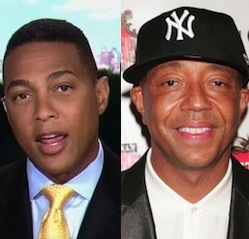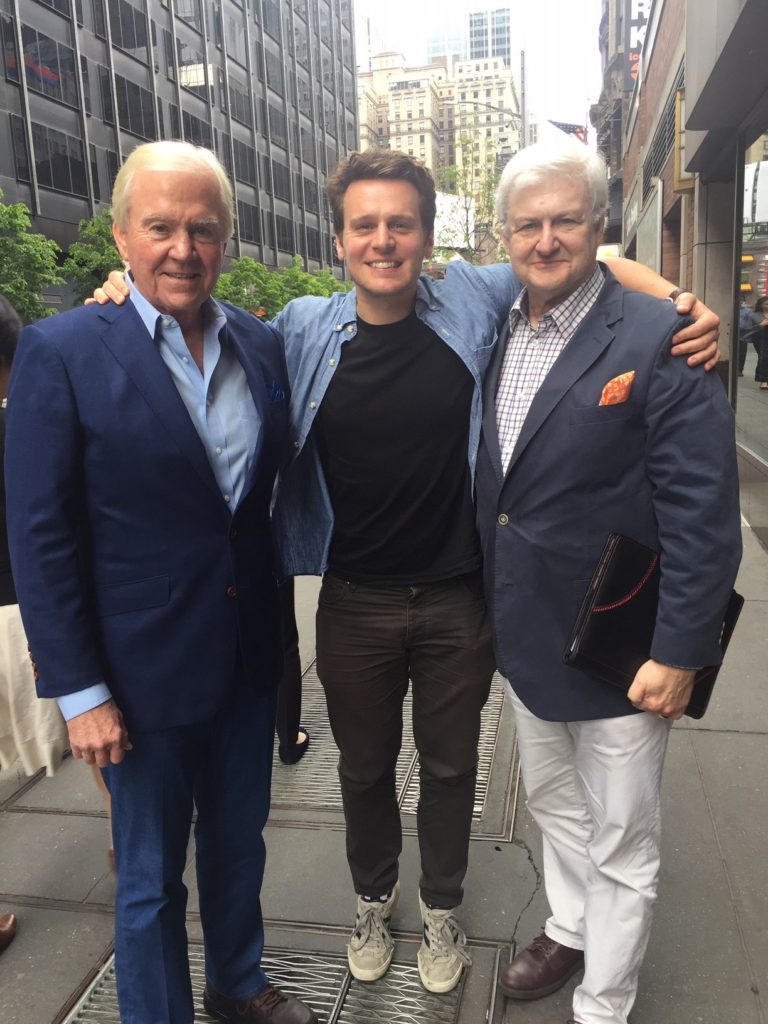As we recounted yesterday, CNN Anchor Don Lemon courageously and insightfully outlined five measures young men in the African American community could do to boost their own sense of personal responsibility, self knowledge and self esteem. In so doing, they would cut down on the alarming crime rate that plagues that same community.
To quickly review: 1. Dress appropriately. 2. Stop using the N word. 3. Respect where you live. 4. Finish school and speak properly. 5. Plan for children or stop having them out of wedlock.
In response, media and fashion mogul and activist Russell Simmons responded in an open letter, taking issue with his premises. Mr. Lemon answered him on the air. The exchange is worth examining.
Simmons wrote, “I respect your courage on many other issues, but I can’t accept that you would single out black teenagers as the cause of their own demise because they don’t speak the King’s English or wear belts around their waistbands.”
Lemon pointed out that he had not singled out anyone and never mentioned “the King’s English.” He read Simmons’ elaboration on his second point:
“Hip-hop language and clothing styles are expressions of frustration with the status quo. Young people sagging their pants today is no different than young people rockin’ afros, dashikis or platform shoes in the ’60’s and ’70’s. And many of those rebellious youth grew up to be quite successful.”
Lemon responded, “Afros came out of the struggle, the African American civil rights movement, and are a symbol of the appreciation of black beauty and the black aesthetic. The dashiki is a traditional form of West African dress, which symbolizes African pride.
“Saggin’, by the way, Russell, the hip-hop community, which you helped establish, dropped the “g” on the word, so that spelled backwards the word reads: N-I-G-G-A-S. It came from Rikers Island in New York, one of the largest detention centers in the U.S. It was originally called ‘wearing your pants Rikers style.’ When you went in, you turned in your belt, you turned in your shoelaces, and the only shirt the jail provided was a white, double-XL teeshirt. Are you equating dressing like a criminal to African pride? Are you saying it’s okay to perpetuate the negative stereotype of young black men as convicts, criminals, prisoners? How does that enhance their lives or society as a whole?
“I do give you, Russell Simmons, and some of the hip-hop and rap community credit for trying to clean up your act. Some, like J. Cole and Kanye West are now rapping about social issues like the prison-industrial complex. More of that, please. We welcome that; everyone does. But you’re not off the hook.
“Finally, you write, in part, ‘I want the black kids to grow up and be like you. I want them to know that their imagination is God inside of them.’
“Russell, I really appreciate that. But I don’t want black kids or kids of any race to be just like me. I want them to grow up better than me. That’s what my parents wanted for me and their parents wanted for them. And as we approach the 50th anniversary of the March on Washington, we should realize that it’s what those brave men and women who risked their lives for freedom and equality wanted for us. They fought for us and generations to come, to be better than them – not to be illiterate, or deadbeat dads, or criminals. We must stop the blame for things that we can stop ourselves. And again, as the first African American President of the United States says, ‘No more excuses.'”
Simmons mentioned other valid issues, like the closing of schools in black neighborhoods and the need for “universal pre-K, so no child enters elementary school having to play catch up with the other children who are fortunate enough to go to pre-school. Tell them to make college affordable and obtainable for young students who come from low-income families. Tell them that the right to a healthy life should be universal and not just for the fortunate few. And lastly, tell them that young black men and women don’t just need ‘role models’ or ‘mentors,’ they need ‘sponsors’ who are willing to offer them a job.”
This is all true, and needed. But it doesn’t take anything away from the wisdom and practicality of what Don Lemon was brave enough to say. Lemon’s advice is a start at addressing a problem that crucially needs a solution. And it’s a good start.
Thank you, Don Lemon, for being a role model. Not just to young black men, but to all of us.




























*Profit is what started this whole mess, right? Points to ponder.
Exactly why I watch Fox News, those who have profited will defend their right or justify their use of derogatory language – those who have sense will call it like the CNN guy – at least they have him, I suppose. A step up for them obviously.